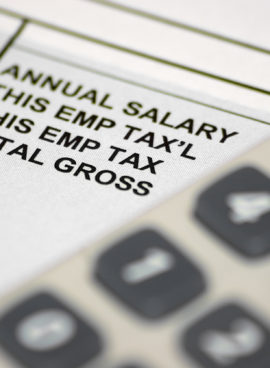Who’s On First: Deferring Payroll Tax
When an employee chooses to defer payroll tax pursuant to President Trump’s recent order, who is responsible for making certain that the tax is actually paid at the end of the deferral period? In the ever-changing world of COVID-19-related guidance documents and regulations, the Department of the Treasury recently clarified that employers bear that burden.
Effective September 1, 2020, employees who make less than $4,000 per biweekly pay period may opt to defer payment of their portion of Social Security withholding taxes through the end of 2020. Those deferred taxes must be paid by April 3
The Impossible Dream – Case Note: EM Building Contract Services v. Byrd Building Services
Is a subcontractor’s performance made impossible by a designer’s incomplete plans or the defective work of another subcontractor? Under those circumstances, is the subcontractor legally discharged from performing its contractual obligations? The Dallas Court of Appeals, in a lengthy opinion, recently addressed this issue.
In EM Building Contractor Services, LLC v. Byrd Building Services, LLC, Byrd, a general contractor, filed suit against EM Building, a drywall subcontractor, over three separate hotel projects located in Texas. After EM Building failed to meet project schedule, failed
How Broad is Broad? PPP Claims
On April 14, 2020, DNM Contracting, a general contractor in Houston, submitted an application for a Paycheck Protection Plan (PPP) loan with Wells Fargo. Two days later, with its loan not funded, DNM learned that all the funds for the PPP program had been exhausted. Shortly afterwards, DNM filed suit against Wells Fargo, seeking class action certification, arguing that Wells Fargo violated the PPP regulations by not paying on a “first come, first serve basis” and by favoring larger borrowers.
Since the case was filed, a series of procedural maneuvers have kept the parties from addressing
Case Note: Taking a Haircut on COVID-19 Business Interruption Claims
Are lost profits associated with local shelter-at-home orders recoverable under a property insurance policy? At least one court, the US District Court for the Western District of Texas, has ruled they are not.
1. Non-Essential Businesses
In Diesel Barbershop, LLC v. State Farm Lloyds, 2020 WL 4724305 (W.D. Tex., San Antonio Div.), several hair salons were forced to close due to their being categorized as non-exempt businesses under Bexar County’s Shelter-at-Home Order and as non-essential businesses under one of Governor Abbott’s Executive Orders. Diesel and the other companies file
Get Out!? Evictions Under the CDC’s September 4, 2020 Order
Your tenant is behind on rent due to COVID-19 related issues. Can you evict the tenant? That one question has profound ramifications for existing properties, projects under construction, and projects still in planning stage. The inability to collect full rent or evict current tenants affects financial obligations, ROIs, and a myriad of other decisions, many of which present risks not just to owners, but developers, designers, contractors and subcontractors.
The Centers for Disease Control and Prevention (“CDC”) just made both the answer to the question as it pertains to residential t
Case Note: Do the Means (and Methods) Justify the Ends?
A recurring question in the design and construction industry is, what is the liability attached to site observation visits? Most design professionals, construction managers, and owners’ representatives include language in their contracts that they are not responsible for contractors’ means and methods or for assuring safe practices. But do those provisions really cut off liability? Is the end result that, regardless of what language is included in contracts, the person performing the site observation visit retains some liability for a contractor using improper means or methods, or cr
Liar, Liar: Invalid, Unenforceable, and Fraudulent Liens
What are your legal remedies when a contractor or subcontractor places an improper lien on property? Under what circumstances is the contractor or subcontractor liable for $10,000 for filing such a lien? The Texas mechanic’s lien statute, found in Chapter 53 of the Texas Property Code, provides some of the answers. Among those answers is filing a motion to remove the lien, bonding around the lien, and seeking $10,000 and punitive damages for a fraudulent lien.
1. Summary Motion
The Texas mechanic’s lien statute, in particular Texas Property Code § 53.160, allows for a “summar









